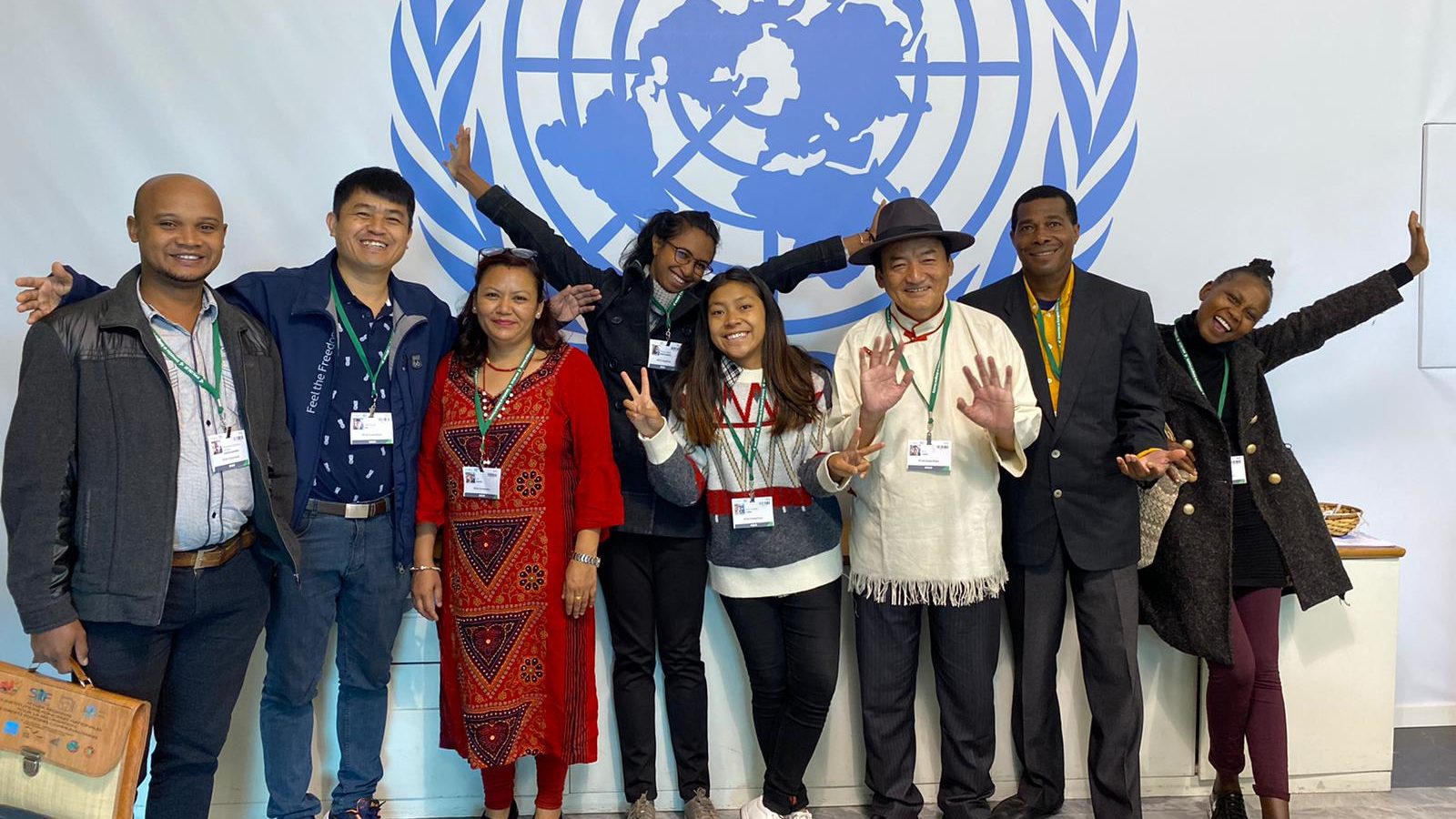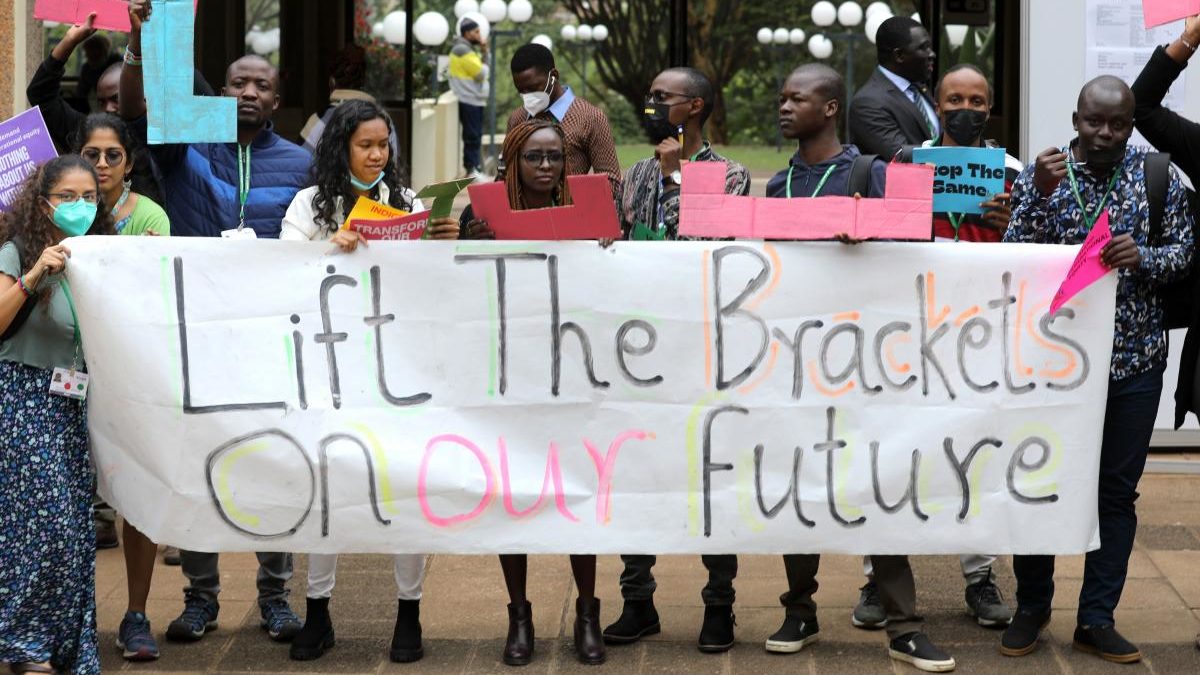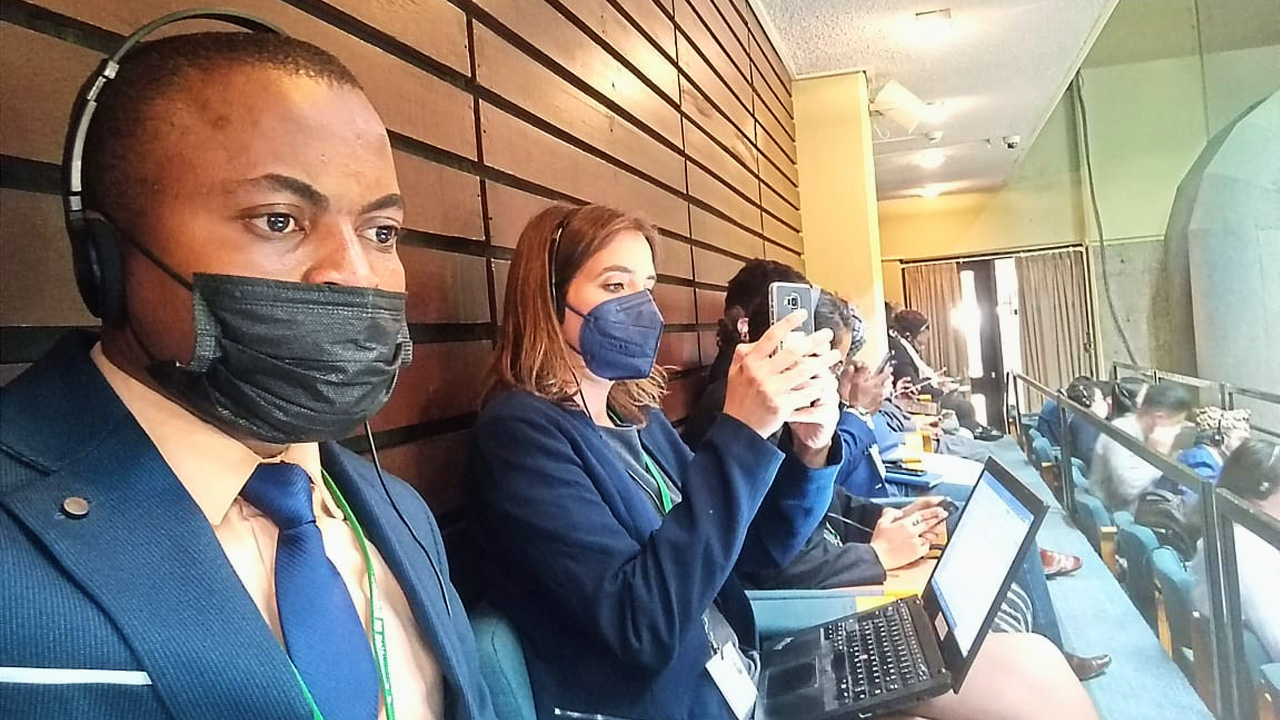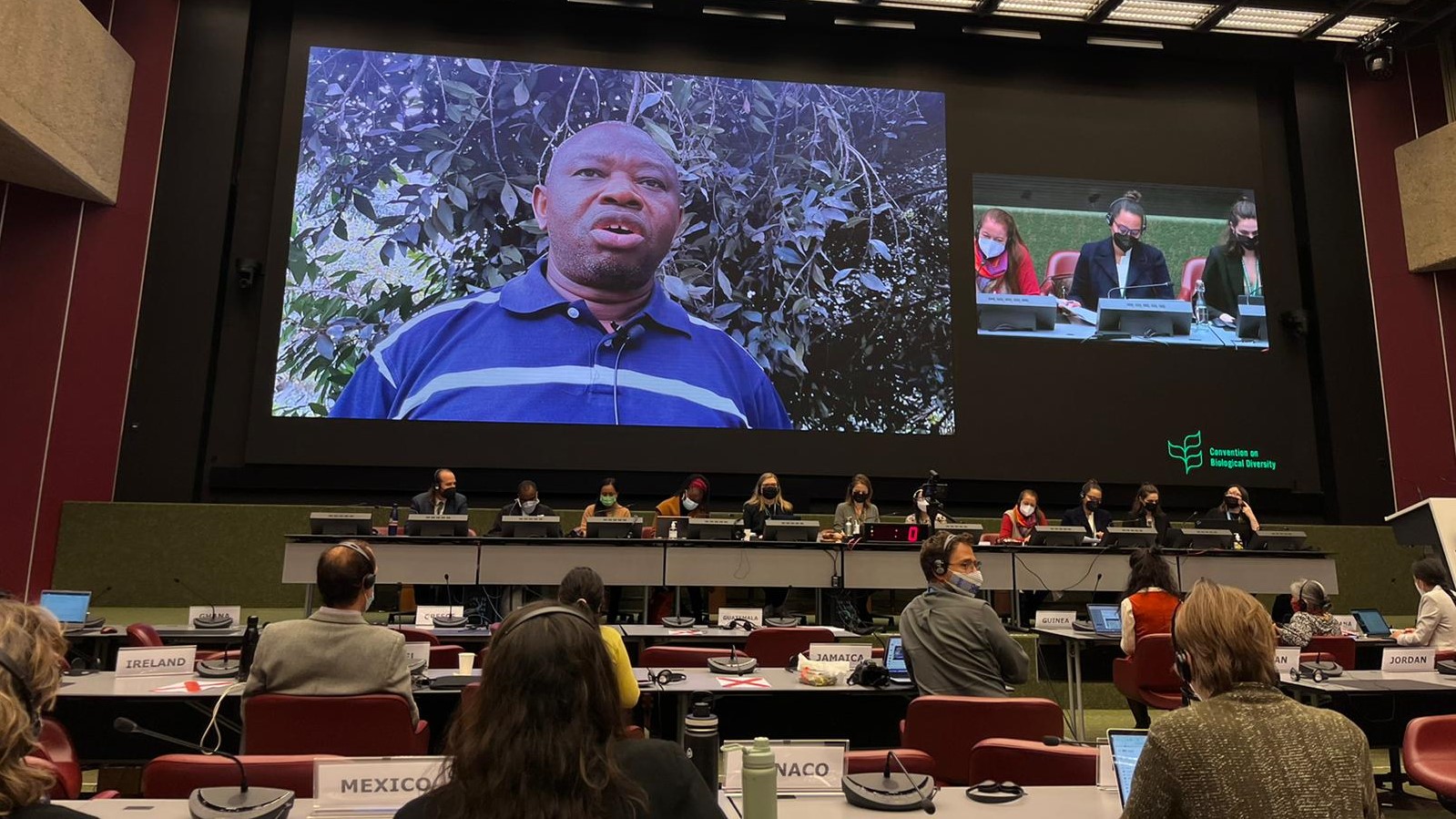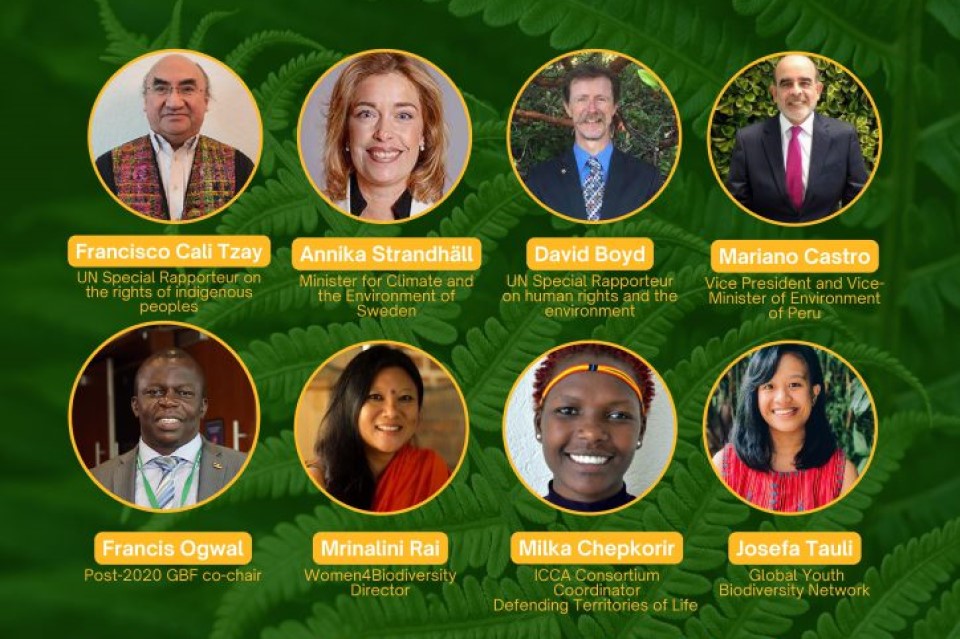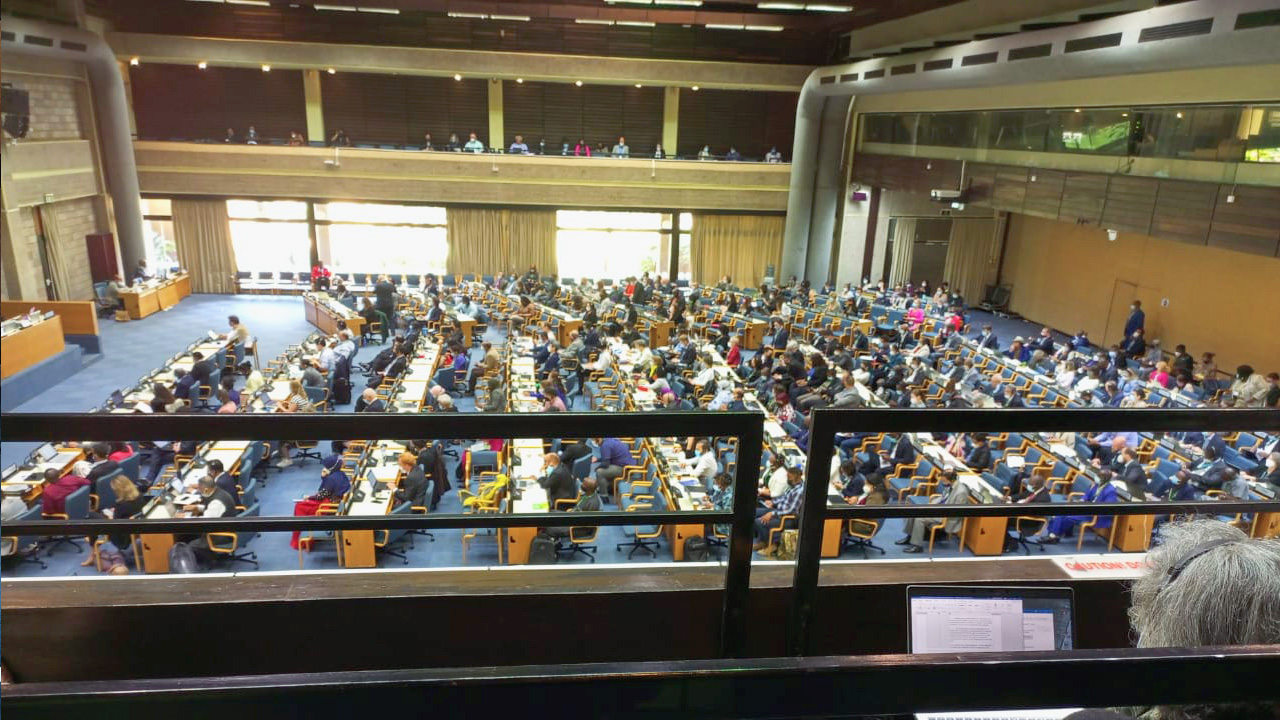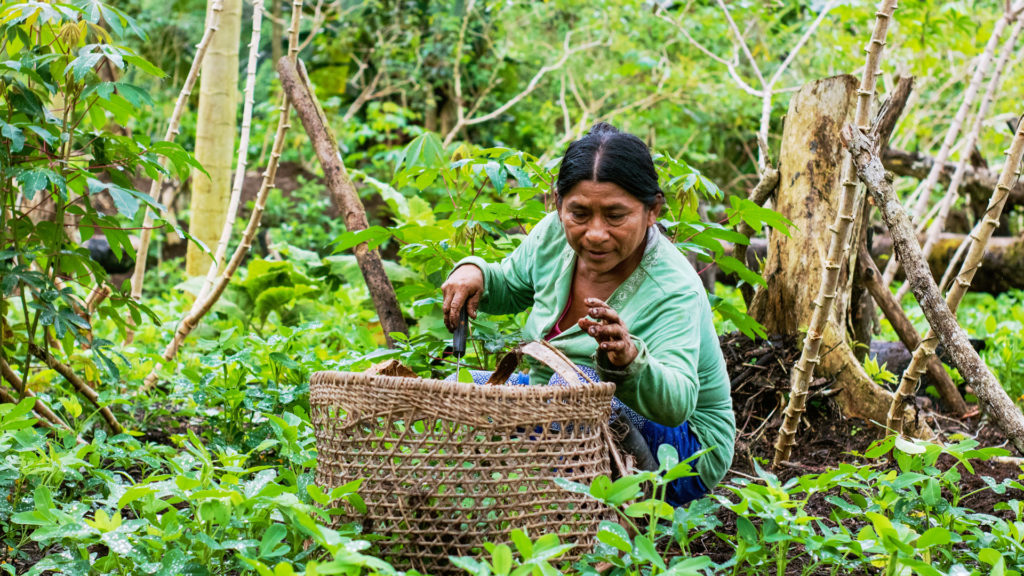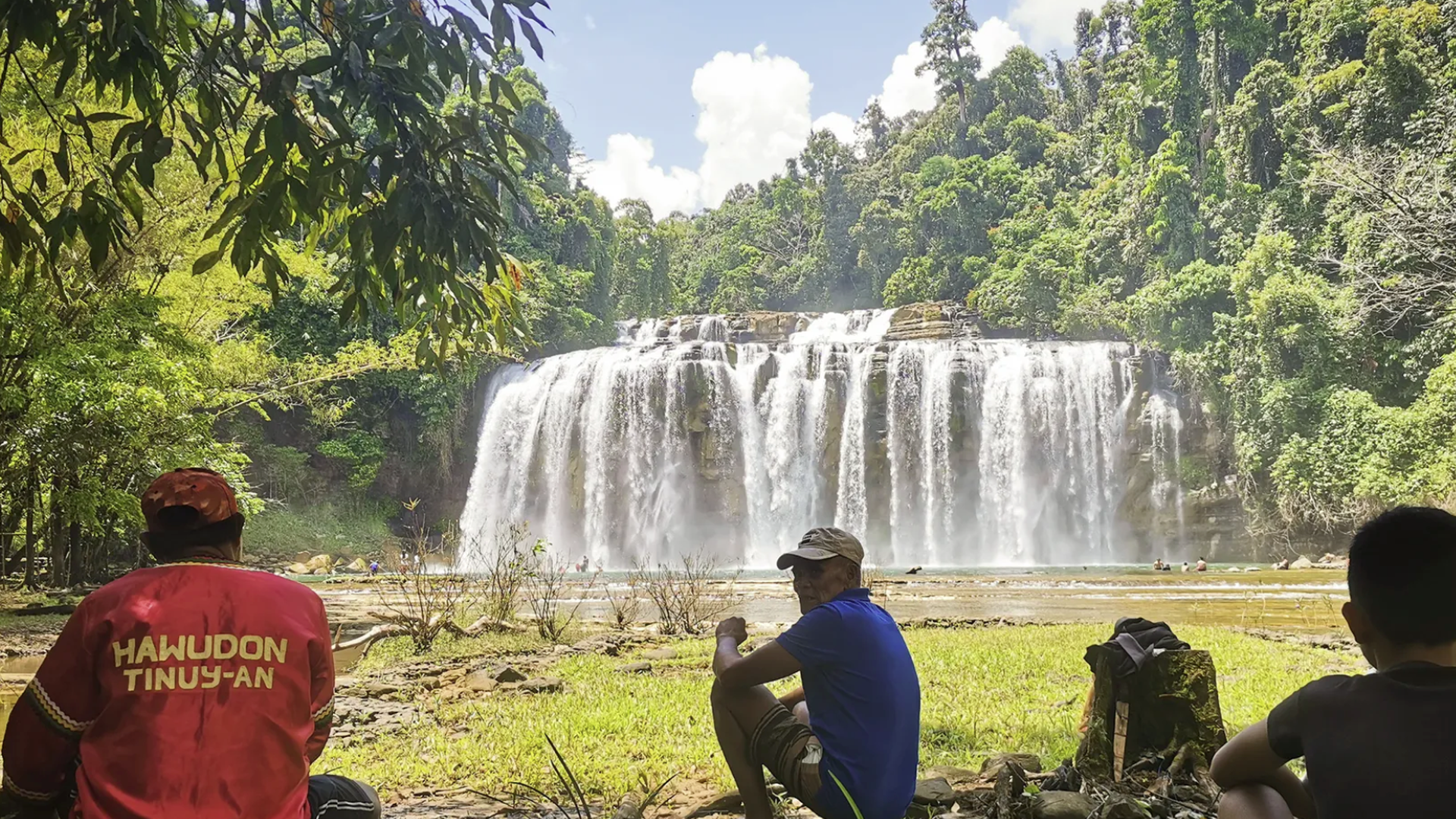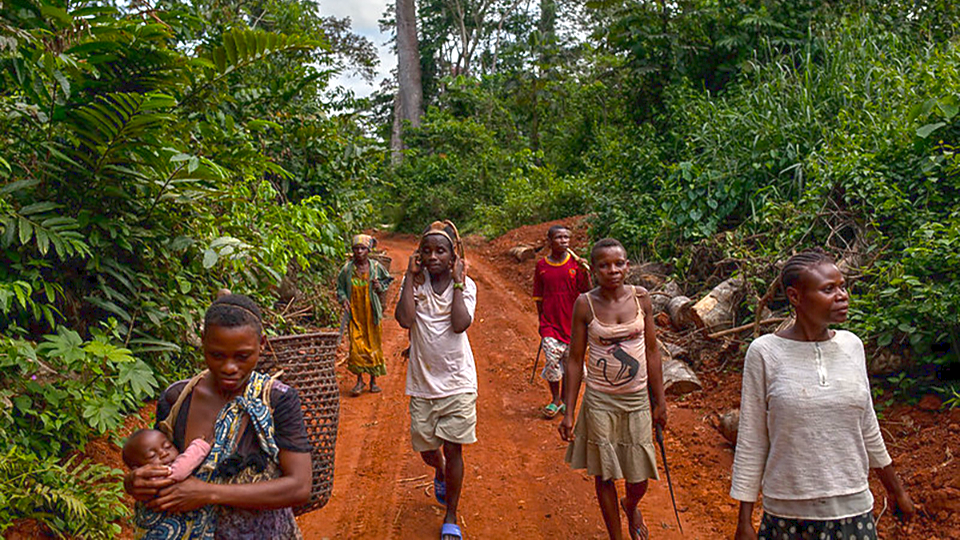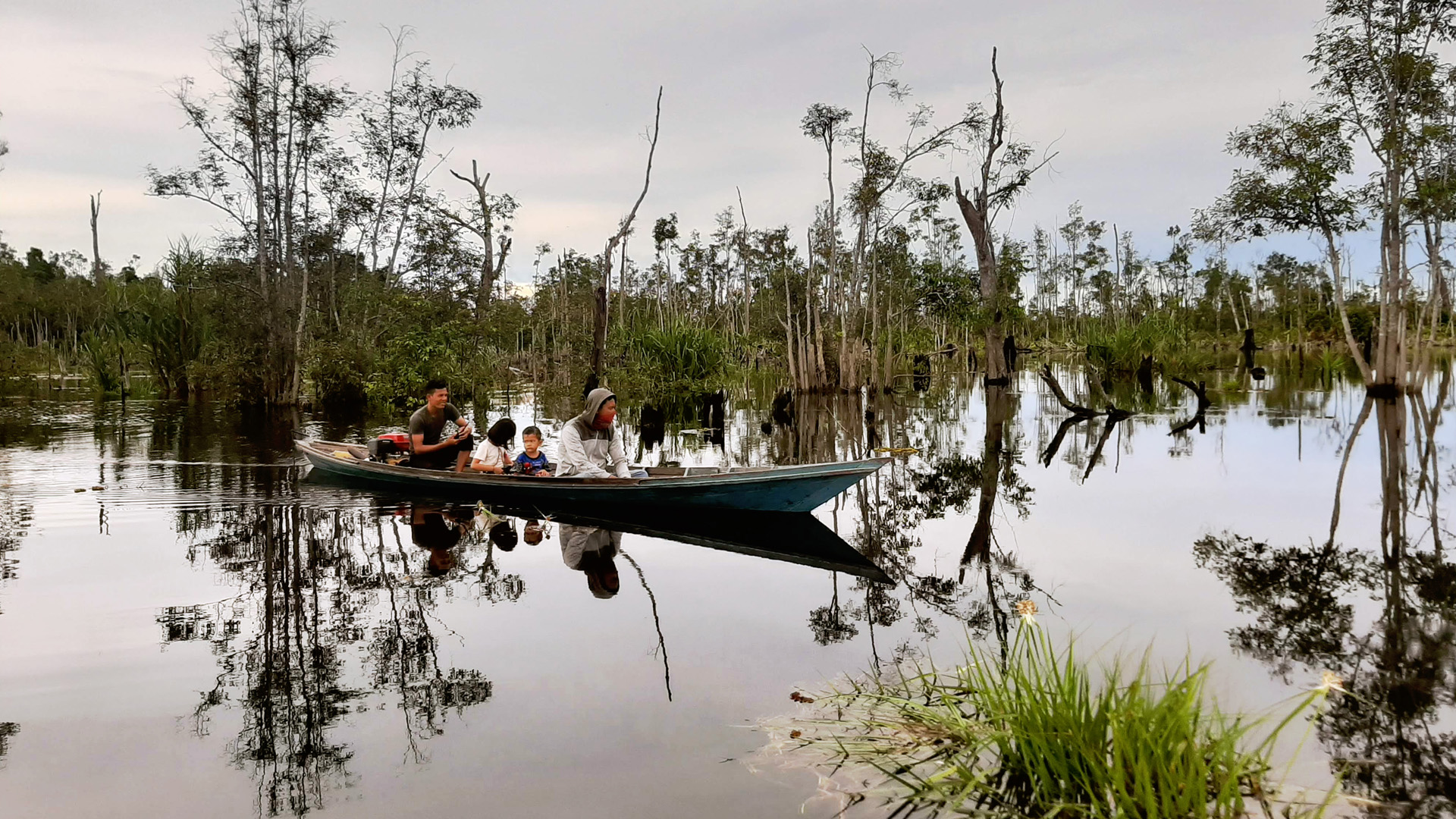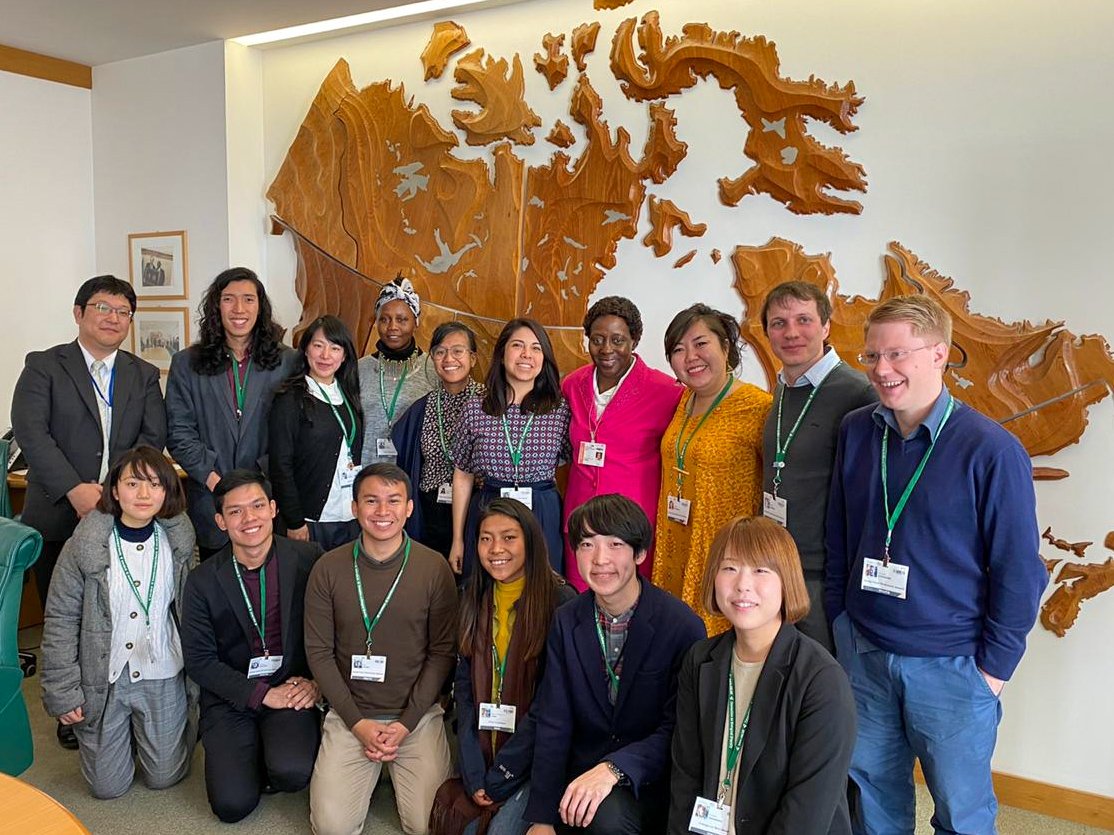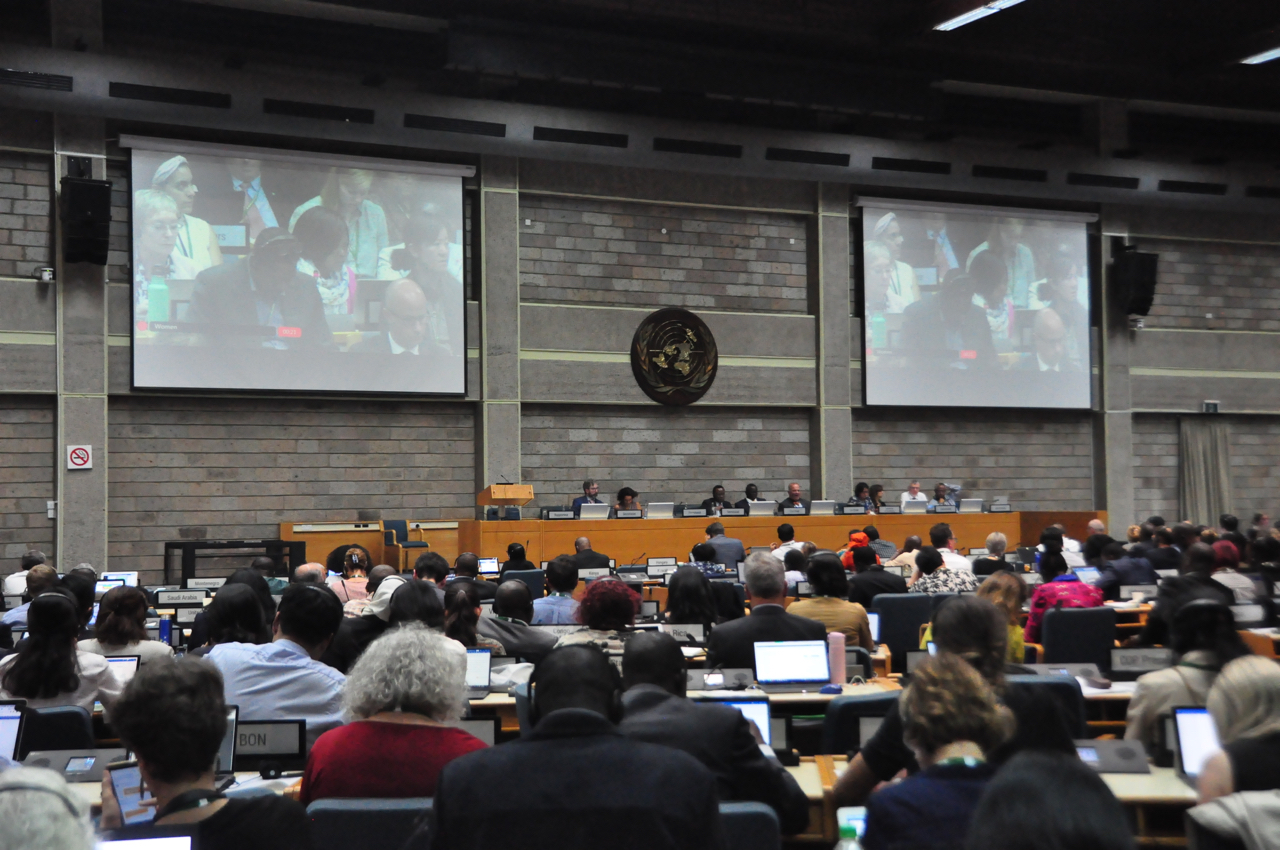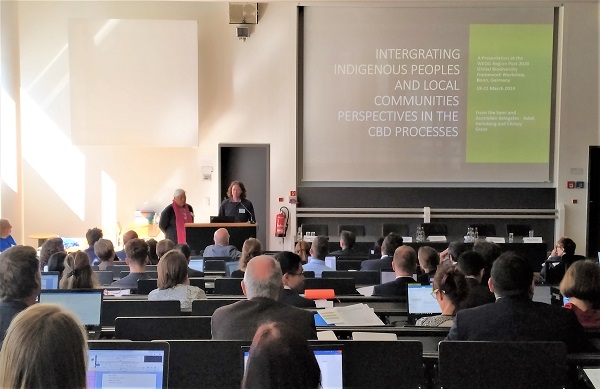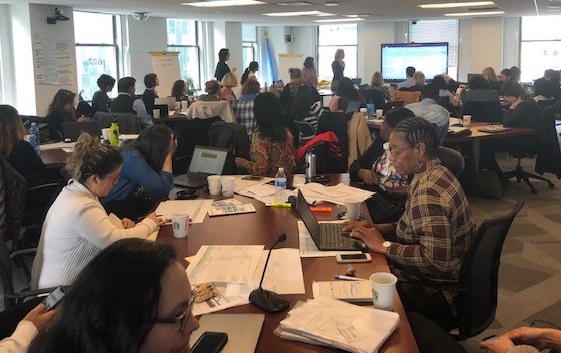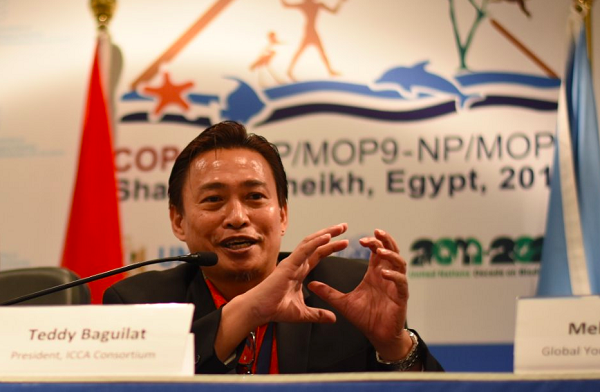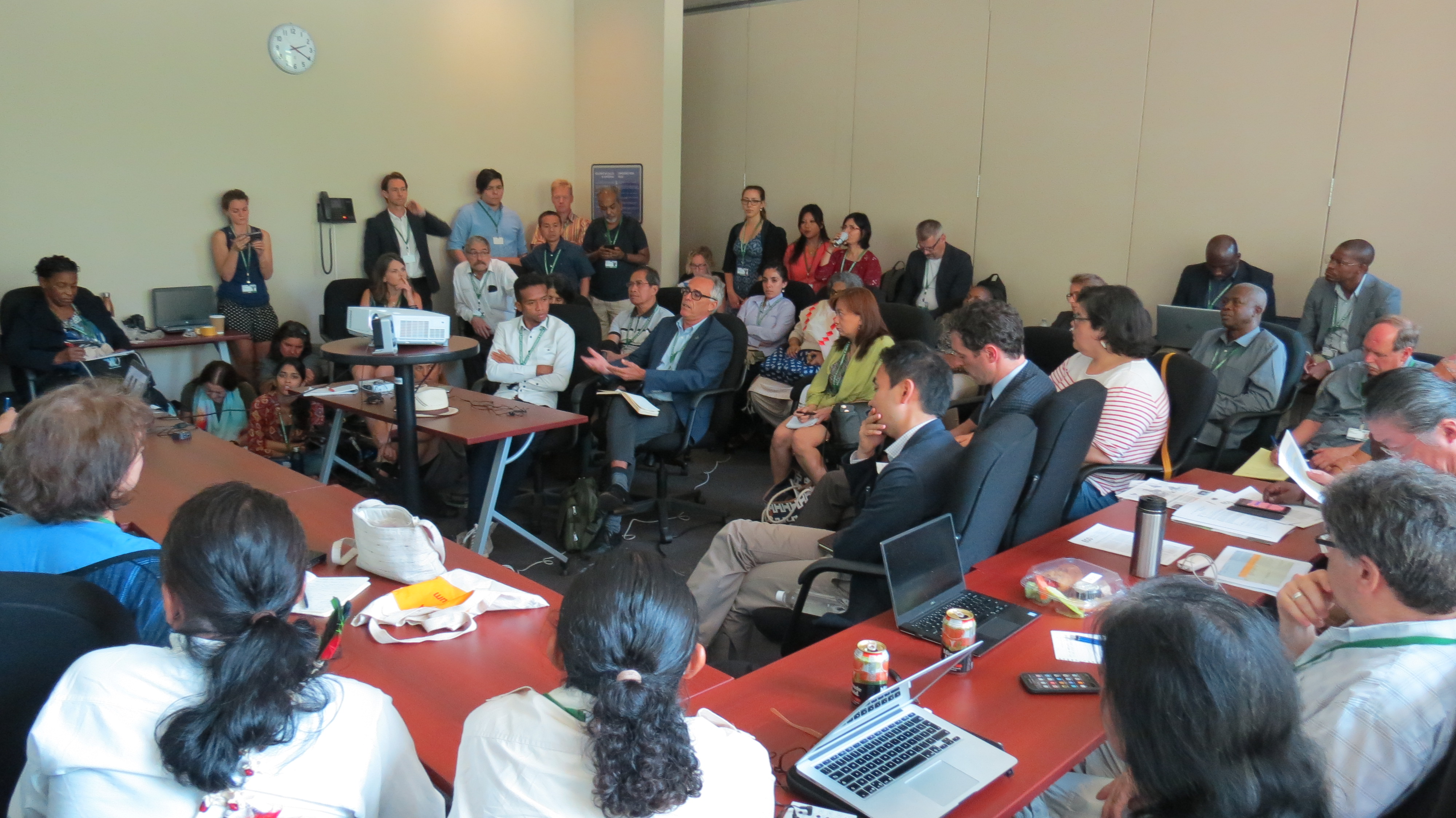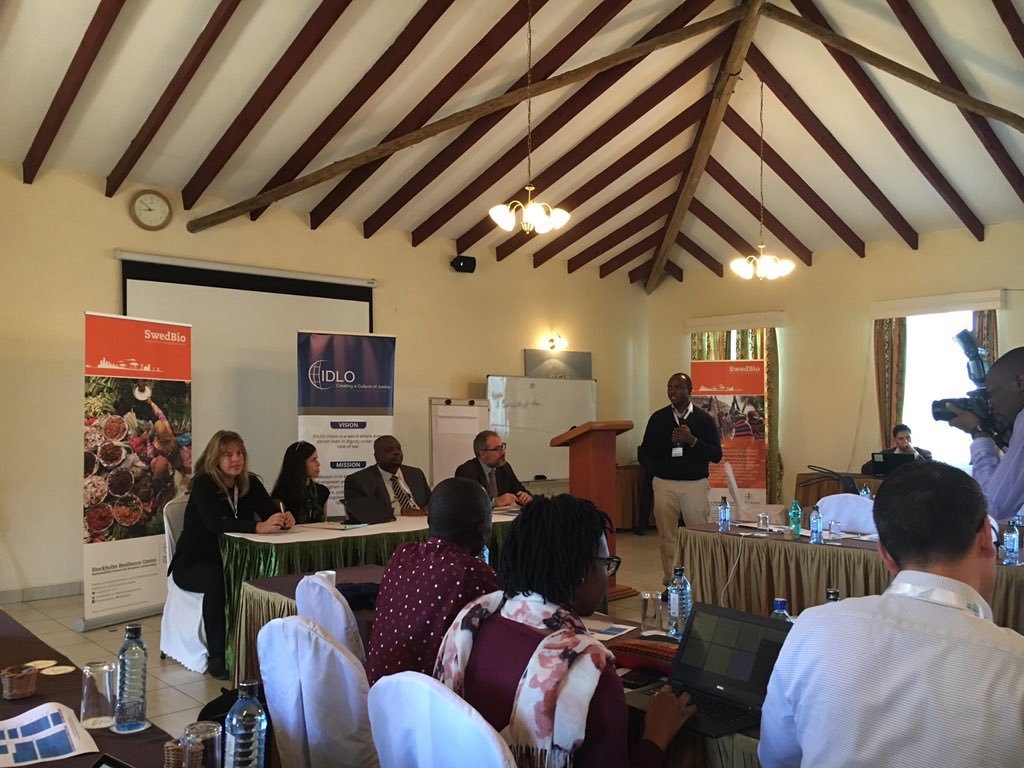Au cours des dernières années, le Consortium APAC ainsi que nos Membres et Membres d’Honneur avons joué un rôle actif dans le processus des négociations de l’ONU sur le cadre mondial de la biodiversité pour l’après 2020, notamment par le biais de contributions écrites, de notre participation en personne aux négociations et aux ateliers préparatoires connexes, d’événements parallèles conjoints, et plus encore. Nous avons continué à nous impliquer dans le processus officiel tout au long de la pandémie de la COVID-19, malgré de nombreux défis, et nous serons représentés par une importante délégation lors de la 15ème réunion de la Conférence des Parties (COP15) qui se tiendra en décembre 2022 à Montréal, au Canada. Pour en savoir plus sur notre implication dans le processus officiel pour l’après-2020, consultez les mises à jour ci-dessous, en commençant par la plus récente.
2022
Through the major caucuses, ICCA Consortium Members and Honorary members advocated for the recognition of human rights, collective lands, territories, and resources of Indigenous Peoples and local communities, environmental defenders, gender equality, future generations, and more in the fourth round of in-person negotiations of the post-2020 framework.
As the fourth round of negotiations on the post-2020 framework began in Nairobi, we looked at the key issues identified by our membership.
We must take stock of the March 2022 negotiations in Geneva to ensure a strong outcome for the next round in Nairobi in June.
Several ICCA Consortium Members and Honorary members contributed to this engaging side event at the 5th session of the UN Environment Assembly in March 2022.
The roles, rights, and responsibilities of Indigenous Peoples and local communities must be appropriately recognized in the post-2020 global biodiversity framework and the reimagining of conservation.
Les Parties doivent aligner les objectifs et les cibles du cadre pour l’après-2020 sur les valeurs, la vision et le leadership autodéterminés des gardiens des territoires de vie afin de garantir une planète saine et durable pour tous.
2021
Soutenir les Peuples Autochtones et les communautés locales afin de garantir leurs droits, de renforcer leurs systèmes de gouvernance autodéterminés et de préserver leurs cultures, leurs territoires et leurs modes de vie en respectant leurs propres critères est l’une des plus grandes opportunités pour créer un changement transformateur dans le cadre mondial de la biodiversité pour l’après 2020.
New policy briefs underscore the interlinkages between human rights and biodiversity and share practical guidance on applying a human rights-based approach in the post-2020 global biodiversity framework, which is currently under negotiation by 196 governments.
The ICCA Consortium joins over 160 civil society organizations and academics in an open letter calling on world leaders to integrate human rights into global and national environmental policy and practice.
2020
After a late-stage venue change from Kunming to Rome, jittery delegates focused on negotiating the zero draft of the post-2020 global biodiversity framework in the same week that COVID-19 sadly began to take hold in Italy.
As part of a growing chorus of voices urging government Parties to the UN Convention on Biological Diversity (CBD) to ramp up efforts to stem the tide of the sixth mass extinction, Indigenous peoples, civil society organizations, researchers, and UN agencies alike have sent a clear message that to address the planetary crises, they must focus on protecting human rights.
2019
This second update on the UN CBD process to develop the post-2020 global biodiversity framework focuses on the Open-Ended Working Group meeting from 27-30 August 2019 at the UN compound in Nairobi and a preparatory workshop for Indigenous Peoples and local communities organized by Natural Justice (ICCA Consortium Member).
As the deadline draws near to achieve the 2011-2020 Strategic Plan and Aichi Targets, CBD Parties and observers embark on an intensive process to develop the follow-up agreement – known as the post-2020 global biodiversity framework. So far, the ICCA Consortium has contributed written submissions on the process and content of the post-2020 framework and participated in all but one of the official regional and global consultations.
In April 2019, an expert workshop on developing a gender-responsive post-2020 framework gathered close to 50 women with different backgrounds and expertise in gender and biodiversity conservation and management, including Vivienne Solis Rivera (CoopeSoliDar and ICCA Consortium Honorary member).
2018
The 14th meeting of the Conference of the Parties (COP 14) was held from 17-29 November 2018 in Sharm El Sheikh, Egypt. We had a strong delegation of Members and Honorary members who participated in all the major observer caucuses.
The ICCA Consortium participates in the following meetings of the UN Convention on Biological Diversity in Montreal, Canada: the 22nd meeting of the Subsidiary Body on Scientific, Technical and Technological Advice (SBSTTA-22) from 2-7 July 2018; and the 2nd meeting of the Subsidiary Body on Implementation (SBI-2) from 9-13 July 2018.
The peer-to-peer dialogue took place from 28-31 May 2018 in Kenya. Co-organized by ICCA Consortium partner SwedBio, Member Natural Justice, the International Development Law Organization, Office of the United Nations High Commissioner for Human Rights-Special Procedures, and UN Environment, the dialogue brought together practitioners of environmental and human rights law from the judiciary, academia, civil society and various levels of government.
